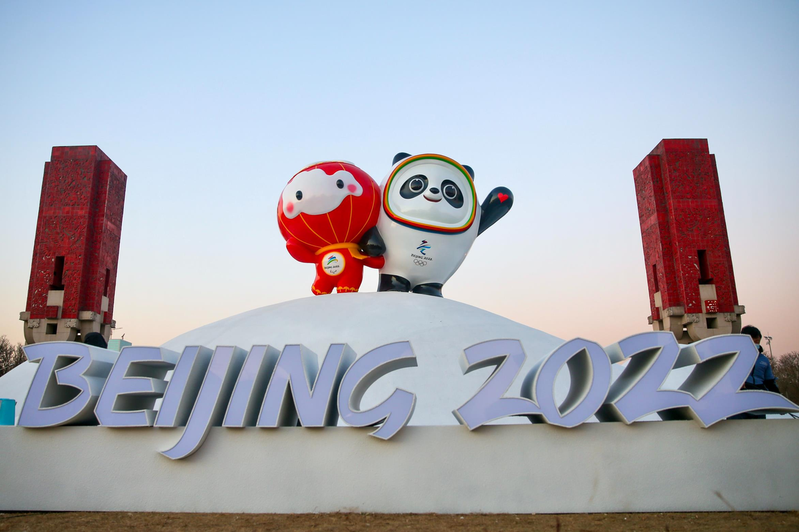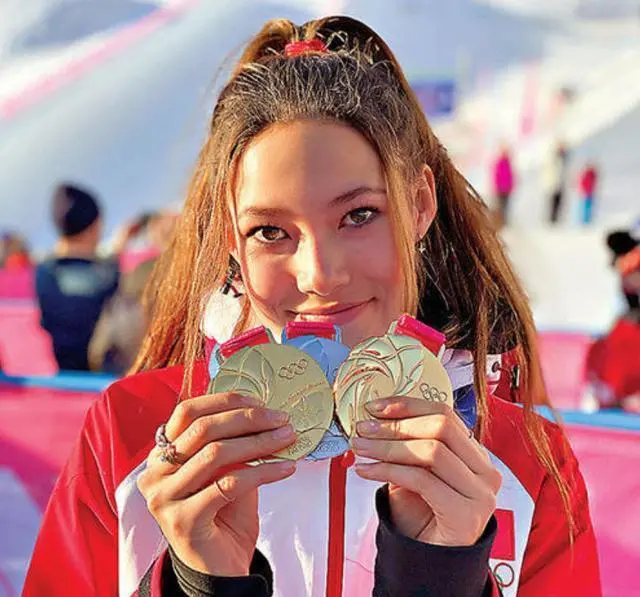Widgetized Section
Go to Admin » Appearance » Widgets » and move Gabfire Widget: Social into that MastheadOverlay zone
What would you remember about the Beijing Winter Olympics?

Now that the flame of the Beijing Olympics has gone out and the world’s attention has been focused on the Games from the beginning to the end, there have been mixed voices. Looking back on the Games, most likely, the first thing that comes to mind is: A talented American-born athlete representing China, a Russian teenager allowed to compete despite testing positive for a banned substance, the mascot of the latest “top fad”, the sudden snow and the exhausting epidemic.
A diplomatic boycott of Beijing, led by western powers, began in the run-up to the Games and has grown in size. The move follows growing allegations of widespread human rights abuses in China, particularly in the country’s western fringe. Millions of Uighurs there are reportedly being held in re-education camps, but the Chinese government calls those detention facilities vocational skills training centers.
As predicted, however, once the Games began, they became the center of attention.
In China, one name stands out the most: Gu Ailing.

This extremely talented athlete was born in the United States and she’s mother is a Chinese. She chose to represent her mother’s country and won two gold medals and a silver for China, becoming the first freestyle skier to win three medals at a Winter Olympics.
It is entirely understandable that she is so popular because she performs well under pressure.
Yet her role in passing on the regime’s propaganda does raise questions about how well she understands the country she now represents.
She was very active on social media, such as Weibo, Xiaohongshu and also Instagram, during the Winter Olympics. One fan asked her why she was able to access Instagram in China, which is blocked.
“It’s not fair,” the fan wrote. “Can you speak for the millions of Chinese who don’t have Internet freedom?”
“Anyone can download a VPN,” she replied. It’s free on the App Store.”
This statement is highly misleading. Jumping the Great Firewall of China with VPNS is not easy, and the use of VPNS in mainland China is currently strictly prohibited.
What the 18-year-old girl may not understand is that the app store she logged into through her Apple account in the US is different from the app store offered in China. After authorities cracked down on their use, there is no VPN that can easily access Instagram.
And the same as “naturalization” athletes, figure skaters Zhu Yi were treated different wat by Chinese netizens, Zhu Yi failure in the competition by countless netizens even painful scold, the duty of said “speak good Chinese first if you want to represent China”, another netizen pulled out his father is very accomplished famous mathematician Zhu Song-chun, and its can enter the national team depends on his father, rather than her true strength.
For the Winter Olympics, athletes, staff and journalists are locked in a giant closed loop.
Another moment that will be long talked about was Kamila Valieva’s fall on the ice after a series of errors in the women’s figure skating competition.
The 15-year-old Russian, previously hailed as one of the greatest skaters of all time, fell and stumbled after a heated doping controversy, leaving her in fourth place.
But even without an uncharacteristic performance, she won’t be awarded a gold medal immediately after her victory because of an ongoing investigation into whether she took illegal drugs. She said this was because the Court of Arbitration for Sport allowed her to continue competing after accidentally ingesting her grandfather’s heart medication.
Thomas Bach, president of the International Olympic Committee, said he was “appalled” by the way her coaches had treated her after she finished fourth.
He spoke warmly of the young figure skater but said her coaching staff would be scrutinized.
Nationalists on Chinese social media, meanwhile, said the skater, whom they called “K Bao,” was the victim of a plot hatched by the United States.
Media outlets, including the People’s Daily, the Communist Party’s most important mouthpiece, amplified the point, quoting a Russian “expert” as saying the incident could be “the result of actions taken by Western intelligence services in the anti-Russian war waged by the United States and its NATO Allies.”
Another point of concern: It’s snowing!
Some have bemoaned the fact that the Games are being held in a dry place and will need a lot of artificial snow. As a result, snow fell heavily in the mountains and some activities had to be postponed because of poor visibility.
Cold winds howling from the Mongolian plateau made conditions harsh, with some competitors shivering in temperatures of -12°C.
But the facilities did not disappoint. Who has ever seen an old steel plant converted into a big jump?
Another bright spot was the camaraderie among athletes in various sports, who embraced and supported each other.
We saw this when Fanny Smith of Switzerland was disqualified from the bronze medal race after finishing third in the cross-country skiing event.
Daniela Maier of Germany, who finished fourth and will medal for it, shook her head at the judges’ decision, saying Smith should not have been penalized.
If you want to sum up what the Olympic spirit is, this must be the epitome. We are all witnesses.
For most Chinese, it’s a winter sports festival, and it couldn’t come at a better time. Because it falls on Chinese New Year, the whole country is on holiday. This is evident in the Chinese public’s enthusiasm for winter Olympics merchandise, especially anything with a panda on it.
This seems to have caught suppliers off guard, as the items are quickly sold out almost as soon as they hit shelves.
For a country new to many winter sports, most people seem to enjoy it. Others worry about an outbreak at the stadium, but never seem to doubt that it will eventually be contained.
This has been helped by restrictions. Health workers conduct daily tests inside the giant coronavirus closed loop to identify those infected. Eventually, the number of new cases fell to zero.
Unlike last year’s Summer Games in Tokyo, organizers in Beijing have been able to contain the outbreak, which means at least some spectators can be invited.
Those lucky enough to get in naturally cheer for the hosts, but they also give a big round of applause to competitors from around the world.
The Chinese government, for its part, must be quite satisfied with all this – lots of medals, the outbreak under control and no athletes protesting.

